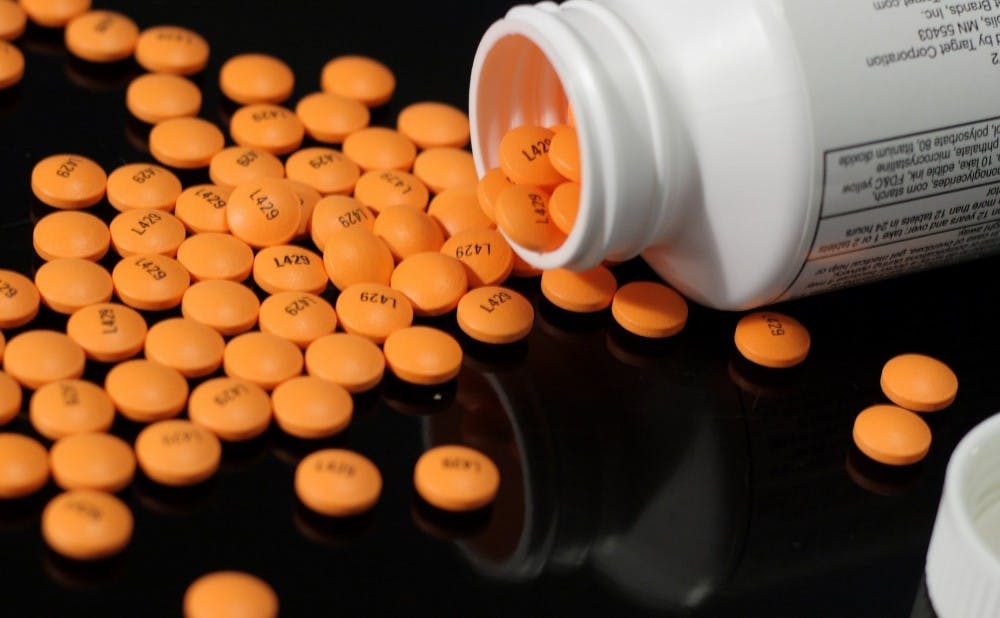Duke investigators have pinpointed a new mechanism behind the common drug aspirin, explaining its use in preventing cardiovascular diseases and colon cancers.
In a study through the Duke Center for Applied Genomics and Precision Medicine, cardiologists identified the proteins that were affected by aspirin administration. Although researchers already knew some of the basics behind aspirin’s effects on cardiac disease, these findings demonstrated that one protein in particular, RUNX1, plays a key role in aspirin’s versatile functions and also pointed toward a way that aspirin may help prevent colon cancer. Dr. Deepak Voora, the cardiologist and assistant professor of medicine who led the study, explained that these findings may help clinicians identify how aspirin can best help patients in the future and might also serve as a model for studying other cardiovascular drugs.
“Of course, we know a lot about the drugs on the market [like aspirin] and their mechanisms of action,” wrote Dr. Geoffrey Ginsburg, director of the CAGPM and professor of medicine, in an email. “But we also find out a lot more about the drug after it is exposed to lots of people, including side effects that could be predicted using our approach. We believe our results will help with better dosing of aspirin and possible uses of aspirin on areas outside of cardiovascular medicine."
Voora explained that most researchers in the cardiology community had previously focused on just one mechanism of aspirin—decreasing the function of platelets, or the cells that help clot blood, by inhibiting the production of an enzyme called COX-1.
In a 2013 study, however, Voora and his team were able to connect aspirin exposure to changes in the levels of 62 different proteins in healthy volunteers, using a measure called the aspirin response signature. Until now, the investigators had not pinpointed RUNX1 as a regulator of genes.
“People have identified novel effects of aspirin, but this is an effect that we think is additional to those on platelets and COX-1," Voora said.
The group applied a “systems pharmacological framework" for their study, Ginsburg explained, by exploring many ways in which blood and platelet cells generally changed in response to aspirin by comparing it to previous data.
Ginsburg added that this approach could be useful for exploring other drugs, something he and other researchers at the CAGPM are planning on doing with pharmaceutical partners.
“How a drug interacts with the body is complex, and in most cases, the desired effect is achieved,” he wrote. “But drugs may have many effects on human metabolism, and a greater understanding of all the potential mechanisms impacted by a drug will allow us to optimize [the benefits of] taking the drug, make more uses of a single drug and allow more tailored prescription of medications.”
Through a holistic framework, Ginsburg noted, researchers and pharmaceutical experts might be able to identify how certain drugs induce side effects or study drugs without using human subjects.
Applying some of these goals to aspirin, he added, could help improve the drug’s effectiveness.
“We don’t know what the right dose is for aspirin for a given individual or a population,” Ginsburg wrote. “It’s just an educated guess right now. And we know that people taking [aspirin] to prevent heart disease still get heart attacks... suggesting that [simply] inhibiting COX-1 may not be sufficient."
Going forward, Voora said he is also interested in exploring how aspirin plays a role in preventing cancer of the gastrointestinal tract, a growing area of research.
“There is a huge history of epidemiological data linking aspirin to colon cancer prevention,” he said. “That’s been known for a long time, and there are guidelines now by the U.S Preventative Services Task Force that recommend aspirin not only for cardiovascular prevention, but also for colon cancer prevention based on these data.”
In that study, the investigators demonstrated that higher levels of RUNX1 were associated with a strong colon cancer survival rate. The team hypothesizes that aspirin could be playing a role in colon development, independent of its effects on platelets.
“Testing that hypothesis [in the future] is a little challenging, but we’re thinking about how we might want to do that,” Voora said.
Get The Chronicle straight to your inbox
Signup for our weekly newsletter. Cancel at any time.

